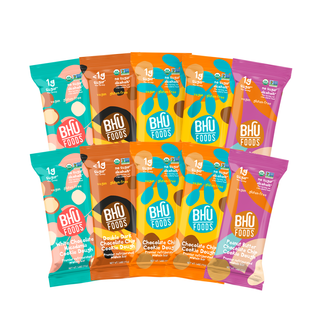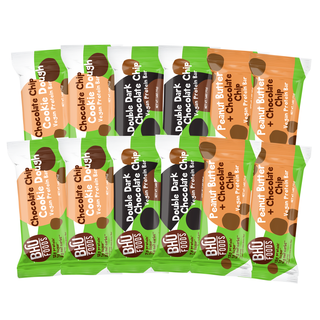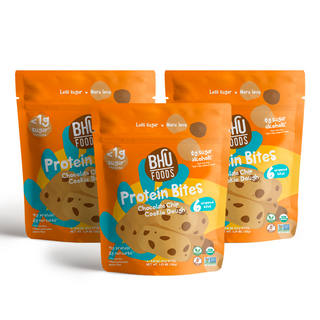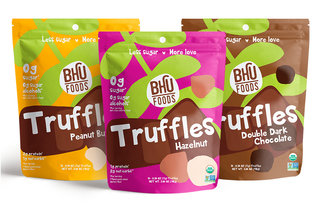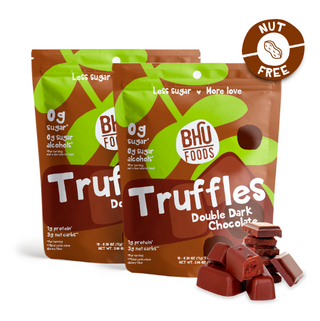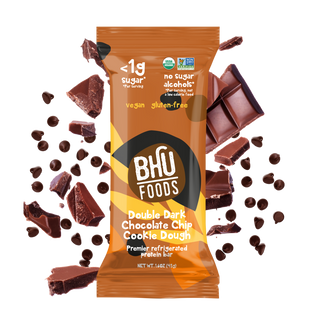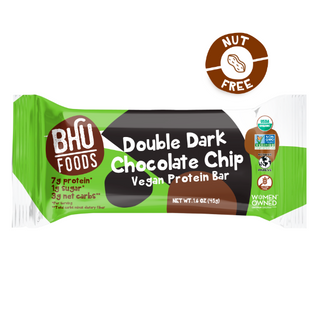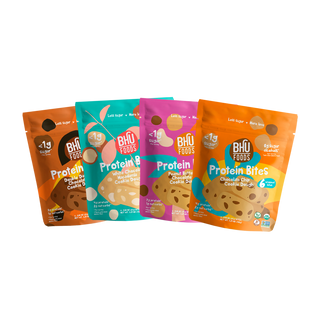
Plant-Based vs. Whey Protein: Which Is Better for You?
Are you in the wellness game, looking to build strength, stamina, or self-confidence? There’s only one heavy hitter, and it’s protein. The question is: what protein packs the right punch for your goals and your grind? Plant-based and whey protein have been caught in a fitness standoff forever. We get one from cow's milk, the other from plant-based foods. One is fast-absorbing; the other is packed with fiber and antioxidants. The gloves are off. Whey vs. plant-based, who are you betting your bottom dollar? Which comes out on top, and why should it matter?
Let the breakdown begin. Real data, practical guidance, and a focus on what your body actually needs.
Protein Quality and Composition
Make no mistake. Not all proteins are cut from the same cloth. When it comes to picking between plant-based and whey protein supplements, not all the cards are on the table until you consider key players like protein composition, digestibility, and amino acid profile.
But plant sources like soy, pea, and hemp can also deliver all essential building blocks, especially when combined strategically. Many plant-based diets rely on different protein sources to cover the full spectrum of amino acids.
What Does Plant-Based Mean?
Exactly what it says on the label: a diet that's based on plants and hinges on foods like fruits, vegetables, whole grains, legumes, nuts, and seeds. If you're jumping to ask, "Isn't this a vegan diet?", stop right then and there. Because you don’t have to go all-in on vegetarianism or veganism to follow a plant-based diet. Most plant-based practitioners just tend to minimize animal-based protein and processed meats in their diets.
Just like everything else in life, plant-based diets come in different shapes and sizes. Some people go head-first into diets that are 100% plant-based. Others throw in a bit of fish, dairy foods, or eggs here and there, but the lion’s share of your nutrients should come from plant power.
Plant-based eating is also a very personal experience. You might go plant-based for its health benefits, and some people make the switch because it’s sustainable or more in line with their ethics. For what it’s worth, people love plant-based diets because of this flexibility. It makes the diet easier to maintain in the long run.
Plant-Based vs. Vegan: What’s the Difference?
Aren’t plants vegetables and the other way around? By that logic, plant-based diets should be exactly the same as vegan diets, right? Wrong. Going vegan means pulling the plug on all animal products - no ifs or buts. Plant-based eating still leans green but doesn’t always slam the door on the occasional egg or piece of fish.
So, are eggs considered plant-based? Technically, no. But you can make room for them in some plant-based diets, especially if you’re going for flexibility over restriction.
The key takeaway here is this: if you take a plant-based approach, then it’s inclusive and customizable. You can adapt it to your lifestyle while still prioritizing health benefits.
What Exactly Is Whey Protein?
Story time! It all starts with making cheese. When cow’s milk is turned into cheese, you get a leftover liquid that’s called whey. If you filter it and dry it into a powder, you get whey protein. It’s the secret sauce in a lot of popular whey protein formulas. Another by-product you can get from the making of hard cheese is sweet whey, with a dry matter content higher compared to regular whey.
Why all the hype, you ask? Well, whey is a powerhouse. It’s packed with protein, delivers not just one but all nine essential amino acids, and you can absorb it in a flash. That’s why it’s a go-to for gym regulars and bodybuilders aiming to max out muscle gains.
You’ll find whey in a few different forms: isolate, concentrate, and hydrolysate. Each one has its spin on protein content and how fast it’s digested. The one you pick depends on what you’re chasing. You can enjoy taking whey protein, whether it's muscle repair, fast recovery, or hitting your protein goals without missing a beat.
Is Whey Protein Good for You?
With whey protein, you get a full fix of to-die-for amino acids that you need to carve up muscle mass, run on the fast track to recovery, and lose weight. If you pair whey protein with strength training, even better. It's a winning combo that gives your immune system a leg up and lets you build lean muscles like a champ.
But there's a small downside: if your system doesn't agree with dairy foods or dairy products, don't force it to. Because if you do, things can backfire quickly and you'll be in a world of bloating, nausea, headaches, and skin flare-ups. Also, go easy on lactose if you're intolerant.
If that sounds familiar, plant-based protein is a solid Plan B. It’s easier on the gut and brings more to the table in terms of nutrients. Whether you’re after something gentler or just want a more well-rounded option, plant protein has your back.
Is It OK to Take Whey Protein Every Day?
Whey protein, like anything else, works best when you don’t go overboard with it. If you're in good health and not going overboard, having it daily is generally A-OK. It can help you hit your protein targets, power through workouts, and stay on track with weight loss goals.
That said, don’t toss whole food proteins out the window. Legumes, grains, seeds, and lean meats still deserve a spot on your plate. A balanced mix of whey and food-based protein usually hits the sweet spot.
Craving a little variety? Mix it up by swapping your shake for a snack now and then. Vegan protein bars or plant-based cookies made with pea or rice protein offer a change of pace, without missing a beat. Brands like BHU make it easy to get your protein fix without throwing your routine off course.
Why Whey Protein Is on the No-No List for Some Doctors
For some people, whey protein isn’t the best fit. Medical pros may wave the red flag if you’re dealing with conditions like lactose intolerance, kidney issues, or a sensitive stomach. There’s also a growing concern about leaning too heavily on supplements instead of getting your protein the old-fashioned way…from whole foods.
Bottom line? Before you dive into any new supplement routine, touch base with your doctor or a registered dietitian. Better safe than sorry.
Protein Supplements: Whey or Nay?
You'll get closer to your fitness goals by taking whey protein supplements and whey protein concentrates. They help increase lean body mass and enhance plasma amino acids - especially after you're done working out. These protein supplements are great, but not if you're sensitive to dairy foods. You might prefer plant-based alternatives. They offer similar results anyway, without the digestive side effects.
The Benefits of Plant-Based Protein
The thing they don't put on marketing materials is that plant-based diets come with a ton of upside. Who doesn't want better heart health, easier weight control, and a lower risk of type 2 diabetes? You can even prevent certain cancers with a plant-based diet. Plus, a plant-based diet with low fat can cut down the amount of insulin needed by people with type 1 diabetes.
Before you head for a diet with animal-based protein and animal-based foods, just remember that plant proteins are full of fiber that your gut loves and phytonutrients that boost wellness and shield you against increased risk of heart disease.
Plus, swapping animal protein for plant power pays off. Numerous studies showed that people who replaced metal with plants had a 19% lower risk of heart disease and a 27% less chance of coronary problems. An animal diet exposes you to a higher risk of heart disease
Plant-Based Foods Save the Planet
Some of us let conscience get in the way of our diets. If you're one of this crowd, then opt for a plant-based diet. They leave a smaller carbon footprint and don't damage the environment as much as animal-based proteins. One protein, two stones!
You don't have to go above and beyond for it either. You can grab BHU’s Protein Bites and https://bhufoods.com/collections/vegan-protein-bars that don't sacrifice flavor and pack in the good stuff. If you've decided to hit your protein goals the plant-powered way, BHU products are where we'd start.
Unstoppable Plant Protein Sources
You might've heard the term "complete protein sources" thrown around and might not know what it means. We use the term to refer to plant proteins that have all nine must-have amino acids. These include Ezekiel bread, quinoa, buckwheat, soybeans, chia seeds, and hemp seeds.
Plant Protein and Muscle Mass: A Real Thing
“Bro, you can’t bulk up on a plant-based diet.” You’ve probably heard this before. Don’t worry, it’s a myth. Muscle growth with plant protein is as real as fat loss with the same proteins. If you mix complementary plant sources of protein like rice and beans, or pea and hemp, you’ll get all the essential amino acids needed for muscle protein synthesis.
From weekend warriors to pro athletes, more and more are going green to fuel their gains and performance goals.
Protein and Older Adults: Don’t Skip the Health Benefits
Different ages require different approaches. As the years stack up, hanging on to lean muscle gets tougher. This is why older adults need to stay sharp about their protein game. Getting enough protein can help keep you moving, strengthen bones, and support the kind of independence that really counts later in life.
While whey protein might work for some older adults, others find plant-based options go down a little easier. For seniors looking for a simple way to sneak in extra protein, plant-powered bars and cookies offer a grab-and-go solution that’s easy on the gut and big on benefits like improving bone mineral density and immune function. They're tasty, and they're easy on heart health.
Are There Downsides to a Plant-Based Diet?
There can be. You'll have to scrape the bottom of the barrel in a plant-based diet to get nutrients like vitamin B12, iron, calcium, and omega-3s. To keep deficiencies off your radar, just load up on fortified foods and go for supplements to fill in the gaps.
We're not saying that a plant-based diet isn't a solid move for your health. But you shouldn't lean too heavily on ultra-processed veggie products either. They'll throw you off course. Your best bet is sticking to whole foods and letting nature do the heavy lifting.
Comparing Whey and Plant-Based Protein for Fitness
If you’re hitting the weights or logging serious miles, your body’s calling for extra protein. Whether you go the whey route or stick with plant-based options, both can help you stay fueled and on track.
Whey protein gets to work fast, making it a solid pick for post-workout recovery. On the flip side, plant-based proteins digest more slowly, pack in extra fiber, and bring along a bundle of nutrients that support long-term health.
These days, clean-label snacks are stepping up to the plate, offering protein-packed options that suit all kinds of diets. BHU, for instance, blends pea and sunflower seed protein into tasty bites that check the boxes for variety, performance, and plant-powered goodness.
Why Not Go for Animal-Based Protein?
As much as we like plant-based diets, we can't ignore the fact that animal-based protein sources like beef, poultry, eggs, and dairy proteins are filled to the brim with amino acids and highly bioavailable.
They've set the gold standard for maximizing muscle protein synthesis because they're also complete proteins and have a full-on amino acids profile. Fans of peak athletic performance have been using them for muscle growth, gaining muscle mass, and boosting their athletic performance.
Animal-based proteins also include higher levels of dietary protein and faster absorption of plasma amino acids. On top of that, they're helpful with muscle protein synthesis thanks to protein and amino acids.
But as always, there's risk involved. According to the Food and Agriculture Organization, we need to keep track of not just nutritional value, but long-term impacts on the good system. If red meat is a must-have on your diet, it can increase your blood pressure and lower physical function later in life.
Like we said earlier, protein intake is crucial for maintaining lean body mass, especially in active individuals. That being said, research suggests that plant-forward approaches offer a reduced risk of chronic disease without sacrificing performance or recovery.
Choose What Works for You
So, which is better: whey protein or plant-based? There’s no one-size-fits-all answer. If you need fast recovery with higher protein intake, whey might be your go-to. If you value long-term health, sustainability, or have sensitivities, plant-based protein sources may suit you better.
You can also mix both, depending on the day. If you're looking for snack options that align with your protein needs, products like BHU's Vegan Protein Bars or Superfood Bites deliver a convenient way to refuel without added junk. They're worth a look for anyone who wants to snack smart and keep things clean. At the end of the day, your best protein is the one you enjoy, digest well, and that fits your lifestyle.
Final Scoop
So, which one takes the crown, whey or plant-based protein? If speedy recovery is your top priority, whey might be your best bet. But if you’re in it for long-term health, sustainability, or dealing with sensitivities, plant-based proteins could be your perfect match.
You don’t have to pick sides either! Mixing it up based on your day or your needs is fair game.
Looking for a snack that checks all the right boxes? BHU’s Vegan Protein Bars and Superfood Bites offer a clean, convenient way to refuel; no added junk, just smart ingredients that work with your goals.
Bottom line? The best protein composition is the one you’ll actually enjoy, that your body plays nice with, and that fits into your daily rhythm without skipping a beat.




